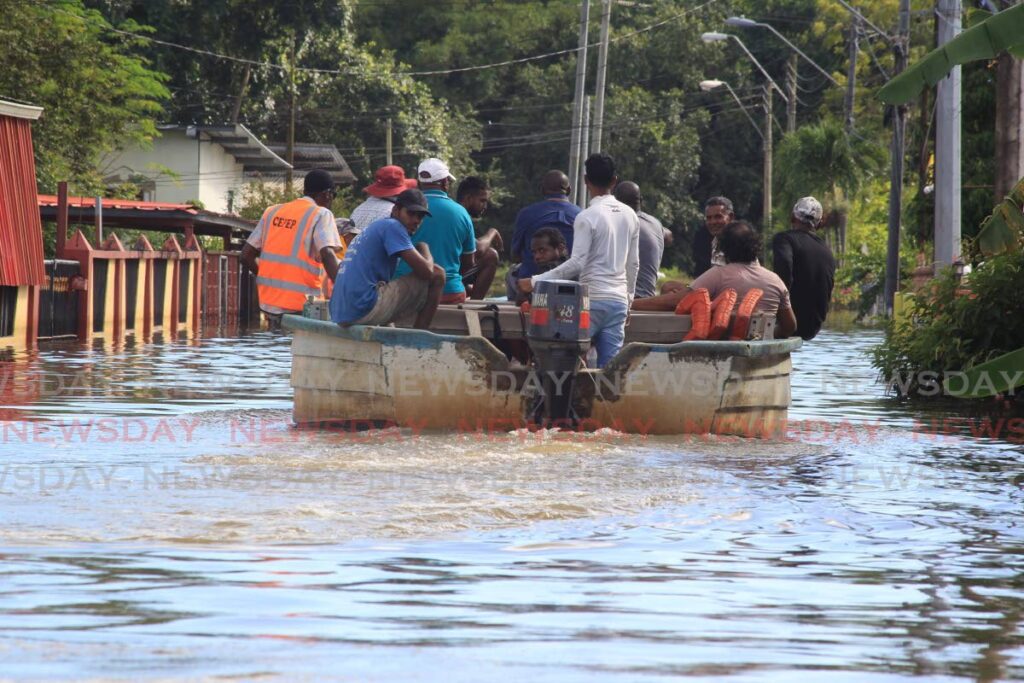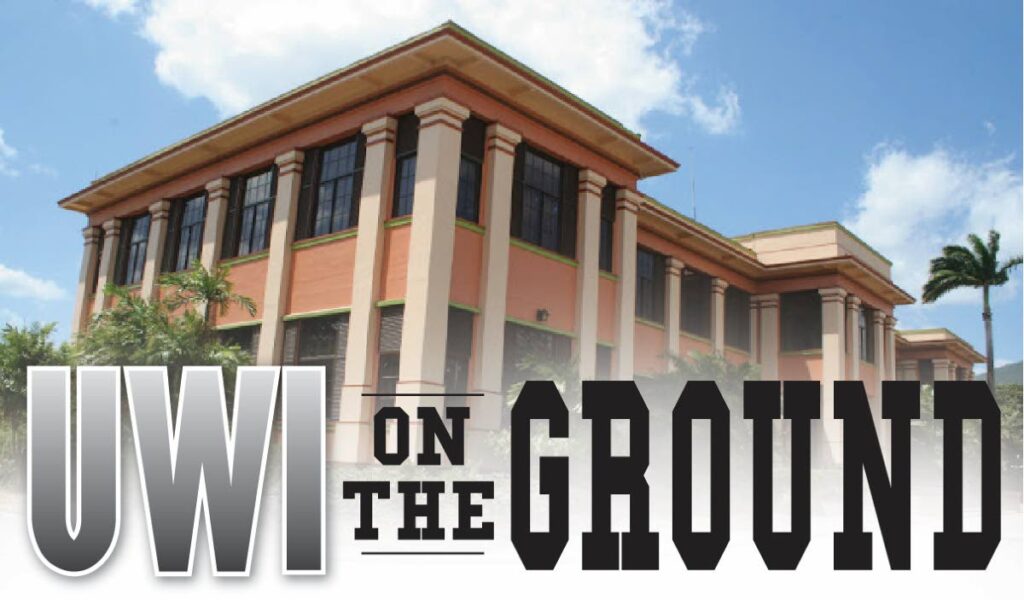Flooding – a national crisis – an engineer's perspective

Dr Don Samuel
Flooding is a solvable national crisis which deserves our urgent attention owing to its ongoing impact to our productivity and economy.
The University of the West Indies (UWI), via its Triple “A” Strategy, aims to build relationships with the society it serves. Thus, this article briefly explores the root causes and offers pragmatic solutions to flooding which has negatively affected the lives of our citizens.
Flooding has been a perennial challenge in TT. According to a 2019 United Nations report entitled “An Economic Analysis of Flooding in the Caribbean” authors Fontes de Meira and Phillips highlighted major floods in 1993, 1996, 2008, 2009, 2011, 2012 and 2018.
The 2019 report presented a map of high-risk areas which flooded in 2022. This is indeed food for thought. The report further explored the impact of the 2018 flood in two key communities. The report concluded that there were losses estimated in the millions owing to infrastructural damage and eradication of crops as well as lost productivity calculated in the hundreds of thousands of hours. Given the 2022 situation, one could deduce the anticipated losses at a national scale. One of the escalating adverse impacts of flooding is the further deterioration of the aging road and bridge network. This compounds the continuing complex challenge so is a prime consideration.
The debate over whether climate change is the root cause of flooding continues. What is clear, however, is the increase in rainfall.

Figures from the TT Meteorological Office demonstrate that the long-term average for November (1991-2020) is 222.9mm while the predicted average for November 2022 is 318mm (actual average is not yet available). Summary annual data presented by the Meteorological Office suggests that November is one of the most active months given the La Nina Effect and Atlantic hurricane season. In 2022, November represented the most significant flooding in our country’s history although it was not as a result of a tropical disturbance. Naturally, the UWI as a tertiary institution grounded in the Caribbean, is concerned about the safety and welfare of our communities. Hence, we advocate for technical solutions to flooding via data driven decision making.
We look forward to the report and improvements that will come from the national drainage study. A national drainage study, an engineering exercise, should:
1) determine the capacity of our rivers/wetlands to accept additional stormwater from developments
2) establish estuary infrastructure to improve the flow rates of rivers during high tides
3) establish an updated flood map with an advanced warning system
4) explore existing/trending land use patterns and
5) provide updated rainfall intensity duration frequency curves.
The drainage study is expected to provide design parameters (flow rates, back water analyses, capacity checks, updated drainage profiles, size of catchment areas and development data) for the construction of estuary infrastructure (such as sluice gates and pumping stations), river infrastructure/dredging and new drainage designs.
The 2015 World Meteorological report entitled “The Effectiveness of Flood Management Measures” supports the execution of a national drainage study via integrated flood management. The report concludes that “failure or hesitation to incorporate both flood management and climate change adaptation into a complementary evaluation paradigm could lead to future unnecessary costs, wasted investments and risks to life and property. Reluctance to insist on accountability and transparency could easily diminish the value of future efforts to manage the response to floods.” The conclusion defines our futile approach to the issue. We must become adaptive rather than reactive to this dynamic problem.

While the national drainage study is long term, the following actions should be done in the short term:
1) desilt/repair all major drains in the 14 municipal corporations
2) crackdown on illegal quarrying
3) assess current land use
4) discourage further development adjacent to river banks and
5) restrict illegal dumping of garbage.
Funding of these actions rapidly via transparent procurement presents a financial challenge, but the issue has reached a critical mass.
The Netherlands solved their flooding challenge with an ongoing collaborative partnership between government and the people via the Delta Programme. As civil engineers, we are first taught to speak with residents of a flooded community in order to use the historical data to inform the technical solutions. Hence, we must adopt a similar strategic and collaborative approach to our national crisis. While the Government has a major role to play, we can all do our part. The UWI itself has an important role.
The UWI has established a Disaster Recovery Team geared at assisting staff and students with flood recovery. The UWI has also partnered with the CAF Development Bank of Latin America to research flood mitigation over a four-year period. Flooding is damaging our roads and critical infrastructure, so we need to act now to guarantee a sustainable economy and future for this generation.
UWI ON THE GROUND
A university must be centred in the community, leading on the key issues of the day. Accordingly, the University of the West Indies, (UWI) St Augustine, offers this public service series where its leading scientists and researchers will address climate and disaster challenges – Series 1.
Today’s contribution is from Dr Don Samuel, the UWI St Augustine’s Facilities Manager (Buildings & Infrastructure). He is a civil engineer with special expertise in project management, construction management and facilities management. He is a member of the American Society of Civil Engineers, Project Management Institute, Chartered Management Institute and the Association of Professional Engineers of TT.
Professor Rose-Marie Belle Antoine
Principal, UWI, St Augustine

Comments
"Flooding – a national crisis – an engineer’s perspective"